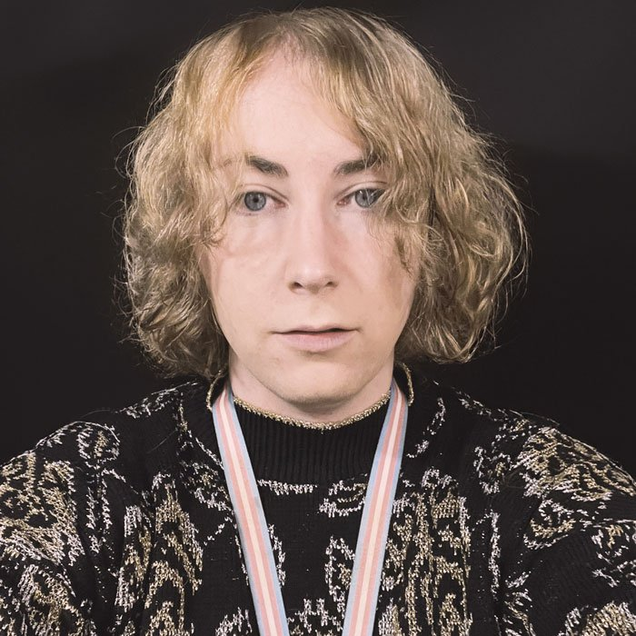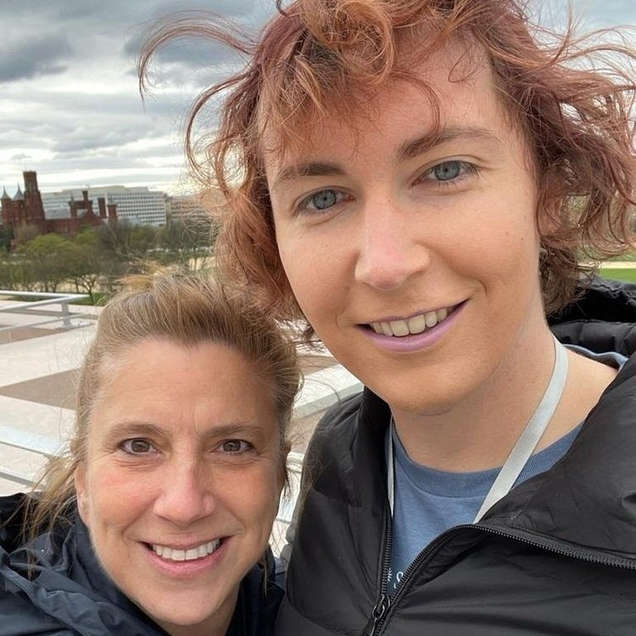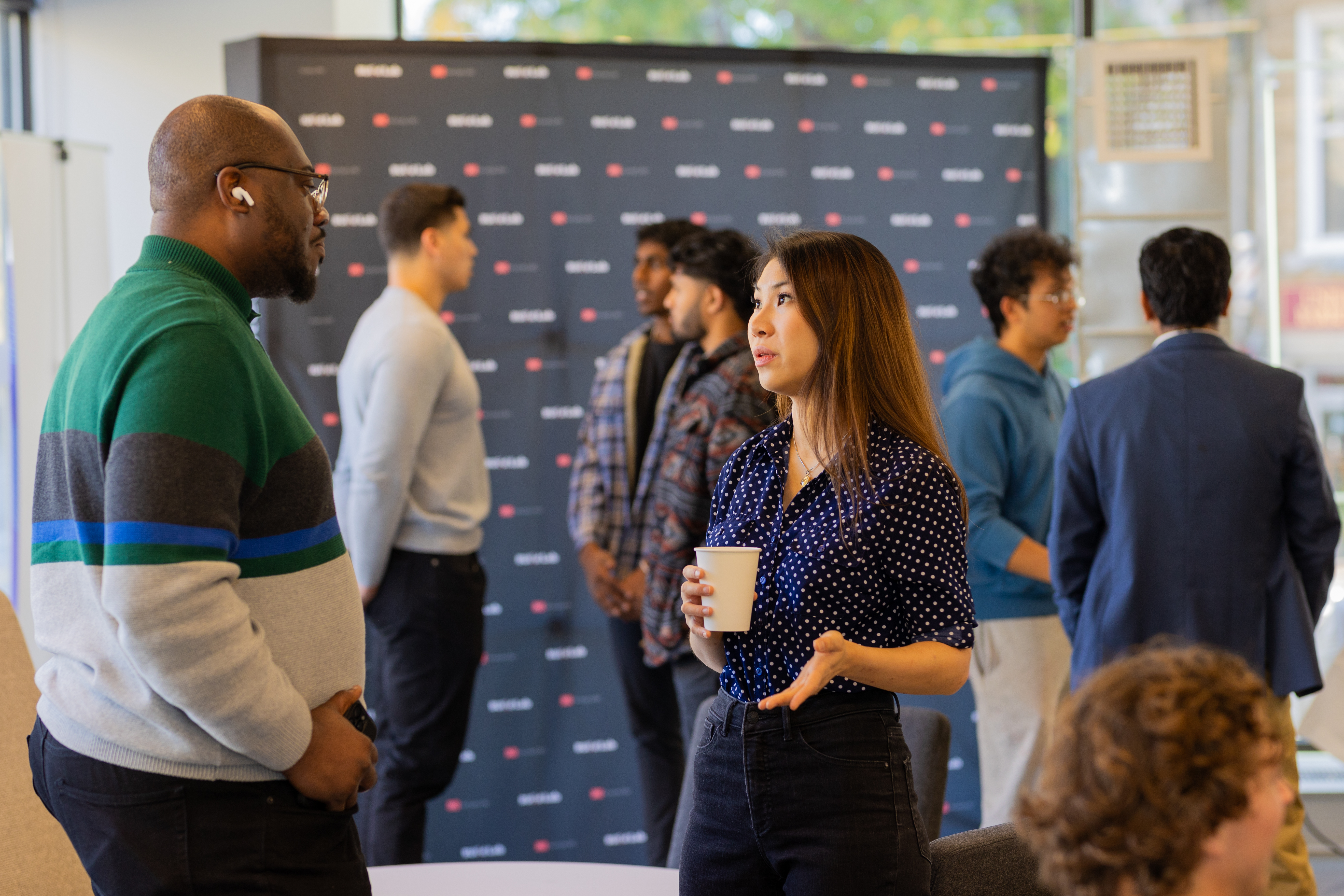5-Year Reflection After the Innovate@BU Summer Accelerator with Dielle Lundberg of Make Fashion Clean (MFC)
Can you briefly introduce yourself and describe Make Fashion Clean (MFC)?
 My name is Dielle Lundberg, and my pronouns are she/her or ze/hir. I participated in the Innovate@BU Summer Accelerator in 2018 while I was a student at the School of Public Health, so it’s been a little more than 5 years since I finished. I am now a PhD student at the University of Washington School of Public Health. I am a disabled, neurodivergent, white, transfeminine person.
My name is Dielle Lundberg, and my pronouns are she/her or ze/hir. I participated in the Innovate@BU Summer Accelerator in 2018 while I was a student at the School of Public Health, so it’s been a little more than 5 years since I finished. I am now a PhD student at the University of Washington School of Public Health. I am a disabled, neurodivergent, white, transfeminine person.

Make Fashion Clean (also known as MFC Tie-Dye Inc. or MFC) is a non-profit organization whose mission is to reduce global fashion pollution by upcycling textile waste and educating about pollution. MFC sells upcycled denim and tie-dye products made out of textile waste sent to Ghana from the Global North in partnership with a community-based organization called The MFI Foundation which runs an upcycling studio in Greater Accra, Ghana. This studio centers artisans (especially women and disabled people) whose livelihoods and crafts have been displaced by the global fast fashion and secondhand clothing industries. It also diverts textile waste from landfills, open-air dumps, and the environment to reduce the impacts of pollution. The MFI Foundation was founded by Matilda Lartey, a fashion designer and environmental educator. Matilda and I have had a creative and advocacy relationship spanning a decade now that started while I was living in Ghana as an undergraduate student for about two years learning about disability advocacy.
What were you struggling with in your entrepreneurial journey before joining the Summer Accelerator program?

Three of us (Dr. Julia DeVoy, Sarah Bibbey, and I) co-founded MFC in 2017 about a year after The MFI Foundation was founded. As a venture, MFC came about because Matilda sought to open an online store to increase sales of the clothes, bags, and accessories her organization was making and to grow The MFI Foundation. She however experienced structural barriers to doing this around shipping, marketing, and the fact that many payment platforms exclude countries including Ghana. The early team did not know how to solve these issues immediately, but they seemed like issues we could overcome if we continued to learn and build a team to work on it. The Summer Accelerator was one place to do that. Looking back, I think what we were struggling with most at the time was whether MFC was going to have its own mission and vision, and how we should build a team with the right skills, experiences, and values to move that forward.
How did the program specifically address and help you overcome the struggles you faced?
The biggest advancements we made at the Summer Accelerator were figuring out more about how we wanted to frame and talk about the project. In 2018, awareness in the U.S. about global textile pollution was lower than it is now, and we were encountering challenges explaining the project. The Accelerator provided a lot of tools and frameworks to more clearly define the mission of MFC and allow us to do a better job of contextualizing the work within larger systems and structures. Having protected time to dive into conversations with our team and with mentors and others in the lab was also helpful to reflect more on my own positionality, my motivations for being involved in the project, and what sort of role I wanted to have long-term.
Can you share a particularly memorable experience or a key learning moment during the program?
I remember a lot of conversations with Priya Krishnamoorthy, founder of an organization called 200 Million Artisans. We were both at the BUild Lab those years thinking about fashion and sustainability, and she is a really amazing connector of people. I think that was something I took away from the Accelerator, which is how cool and powerful it can be when people who are passionate about the creative economy come together to talk about how to make it better.
How has Make Fashion Clean (MFC) evolved post-program?
MFC has definitely grown. In 2017-2018, it was just a few of us trying to figure this thing out. Today, our team at MFC has about 10 people involved, and another team of 10 or so involved with Aftermath Learning Lab, which is an environmental health research and art lab spin-off from MFC that emerged out of collaborations between Dr. Julia DeVoy, Matilda, and I. The MFI Foundation has grown a lot too in that it has a larger board of activists and artisans involved, deeper relationships with the community and partners, and more artisans involved in its programs (around 12 artisans now compared to 6 back then). We have all collectively invested a lot of time and energy to try and build and organize these teams.

Some things that MFC has led or contributed to that I am most proud of are: opening our Etsy Store where folks can order upcycled denim and tie-dye fashion made through our upcycling partnership to help sustain it, The Aftermath Sculpture which visited Boston University in 2022, the Textile Waste Facts educational modules we co-developed, and the LEAPS Textile Waste Conference which we co-launched in 2023 and which is occurring again this year.
Can you share some tips on how future accelerator alumni can remain motivated after the program?
Well, I think there is a narrative that everything will happen fast, and like in a year or two, you will bring products to market and have money for staff. And that’s great if that happens, but it doesn’t a lot of the time. It certainly didn’t for us. Six years in, MFC is still volunteer-run, and our annual budget has not exceeded $30,000, with around 90% going directly into the upcycling partnership with the MFI Foundation. So — everyone on our team is involved very part-time because we all have jobs and responsibilities elsewhere. We have attempted to compensate for this by having a large team with small defined roles and staying focused. We have kept going in part because we have seen that even at this scale, there is an important impact. So my advice would be — I don’t think an impact has to involve thousands of people to be meaningful and worth continuing.
That being said, there have definitely been a lot of challenges. Two examples are when our Kickstarter failed a few months after the Accelerator and then pretty much the entire first two years of the pandemic when many in our project were dealing with emergencies. During those times, I learned a lot about how important it is to normalize conversations about mental health, especially in entrepreneurship where pressure, overwork, and burnout are common. As someone who is open about living with bipolar disorder and who is physically disabled, I know I have done my best work on this project when I have also cared for my own health. So I would just emphasize how important it is to talk about mental health within your team, find the resources available to you, and make plans for when someone on your team needs a break or your whole project needs to pause.
You’ve had an extraordinary journey with MFC – what advice do you have for aspiring entrepreneurs looking to make a social impact as well?
I hope we can all continue to expand the idea of who an entrepreneur is. Artists are entrepreneurs, activists are entrepreneurs… I feel that anyone who has an idea and wants to change something and organize people to do that is an entrepreneur if they wish to identify as such. In a related way, I don’t believe that capitalism and entrepreneurship need to be synonymous. Fashion pollution, waste colonialism, and environmental injustice are all connected to exploitative economic systems like capitalism. However, frameworks for innovation, creative entrepreneurship, and design thinking are neutral and can be very positive and useful tools in pretty much any setting where people come together to take action on an issue together. I also want to encourage and shout out disabled entrepreneurs because your ventures are very important. Many disabled people go into entrepreneurship because workplaces are inaccessible. Despite this, disabled communities, especially those who encounter intersectional forms of oppression, often lack the resources they need to start a venture. I think programs like the Summer Accelerator that provide some of these resources are super important for that reason.
What’s next for MFC?
In the next few months, The Aftermath Sculpture is visiting St. Mary’s College of Maryland and Bridgewater University this spring, and The LEAPS 2024 Textile Waste Conference is occurring virtually on April 25, 2024 — registration and submissions are now open. We are focused on growing our Etsy Store through additional marketing and adding more products. We are also launching an “MFC-MFI Textile Waste Harm Reduction Campaign” for Earth Day 2024 to engage folks in a number of different calls to action around global textile pollution.
Overall, the shared vision that MFC and the MFI Foundation are working towards is for The MFI Foundation to manufacture upcycled designs for other brands beyond MFC by the end of 2027 so that MFI can further scale its impact. If we achieve that vision, MFC in its current form will likely end or take on a very different form. While we aren’t done with MFC yet, it does give me a certain peace of mind to know that whatever MFC’s future is, parts of this community and project that a lot of different people have now built together will continue on no matter what.
You can learn more about MFC on our website or follow us on Instagram.

